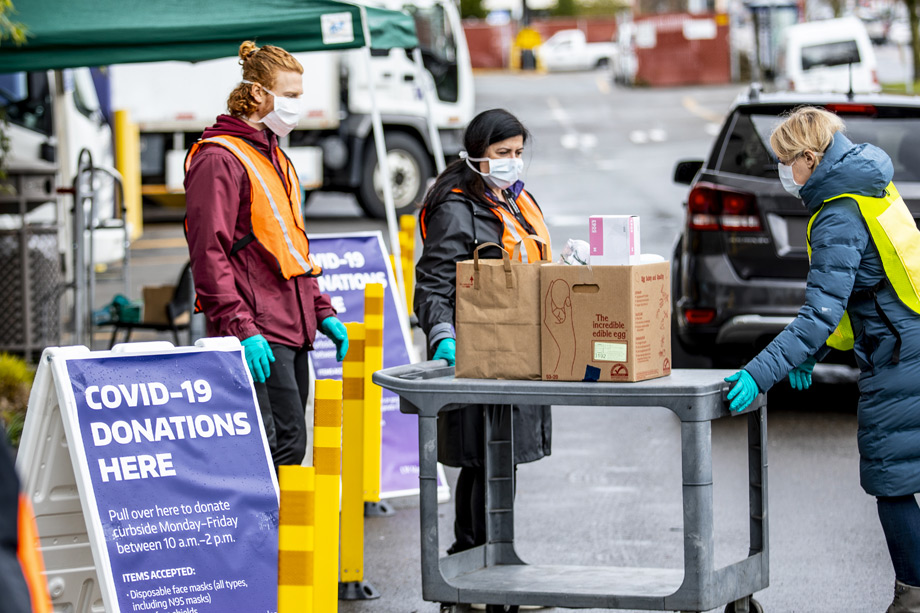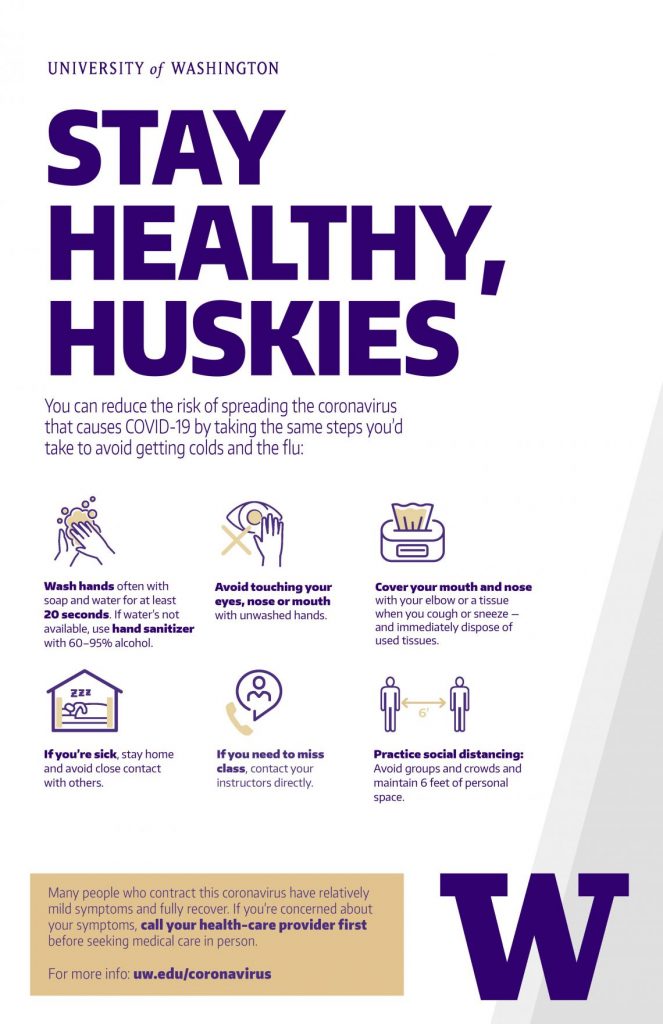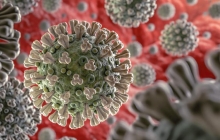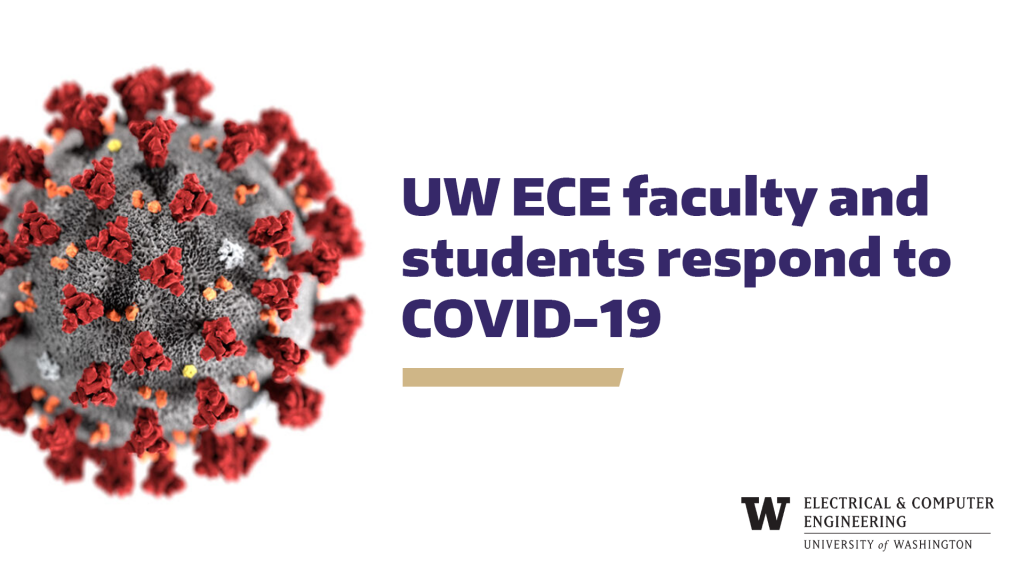This page contains links to information and resources about the novel coronavirus and COVID-19 for UW faculty, staff, students and community members, and serves to highlight some of the COVID-19 related research efforts that several of our ECE faculty are currently working on at the UW and with industry partners.
UW ECE Resources
1. Environmental Health & Safety (EH&S) Online Training
2. ECE’s COVID Prevention Plan in the workplace.
University of Washington Info & Resources
Novel coronavirus & COVID-19: facts and resources
UW WA Exposure Notifications App –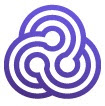
WA Exposure Notifications uses the Bluetooth on your smartphone to quickly notify you if another user might have exposed you to COVID-19. This exposure notification technology is powered by Apple and Google, and allows you to:
- Receive anonymous alerts if you have been in close contact with another user who later tests positive for coronavirus.
- Anonymously alert other users you were in close contact with if you test positive for coronavirus, without sharing any personal information.
University of Washington Human Resources
Child and family care during COVID-19 – includes links to information about child care and elder care, flexibility at work, at-home learning resources and self-care resources.
Backup care – Backup care is available in-home and in child care centers and can be a good option when employees need time to focus on a project or their regular caregiver will be unavailable. Employees are eligible for a fixed number of backup care uses each calendar year and can be encouraged to make the most of this benefit as 2020 draws to a close.
UW College of Engineering Resources
UW CoE Coronavirus Information and Related News
Job searching during COVID-19 – advice from Career Center @ Engineering director Gail Cornelius on how students can navigate the near-term engineering job market.
At-Home Learning Resources from the Clean Energy Institute – provides clean energy learning resources for use by K-12 teachers, students and parents.
UW ECE News on COVID-19

Do international university students experience the engineering classroom differently from that of their domestic peers?
UW ECE Professor Denise Wilson and Ziyan Bai, Ph.D. (UW College of Education), in collaboration with ECE graduate students Shruti Misra and Neha Kardam and Morgan Anderson from the College of Education, recently published a paper that reveals the unique contribution of faculty and TA support to international student success in engineering classrooms before and during COVID, through a cross-sectional study of over 1,200 students. The paper won awards for Best Diversity Paper and 2nd Best Paper in the New Engineering Educator’s Division at the recent American Society for Engineering Education (ASEE) 2021 conference. For more information, please visit the team’s COVID-19 research website or contact Professor Denise Wilson at denisew@uw.edu or Ziyan Bai at baiziyan@uw.edu.
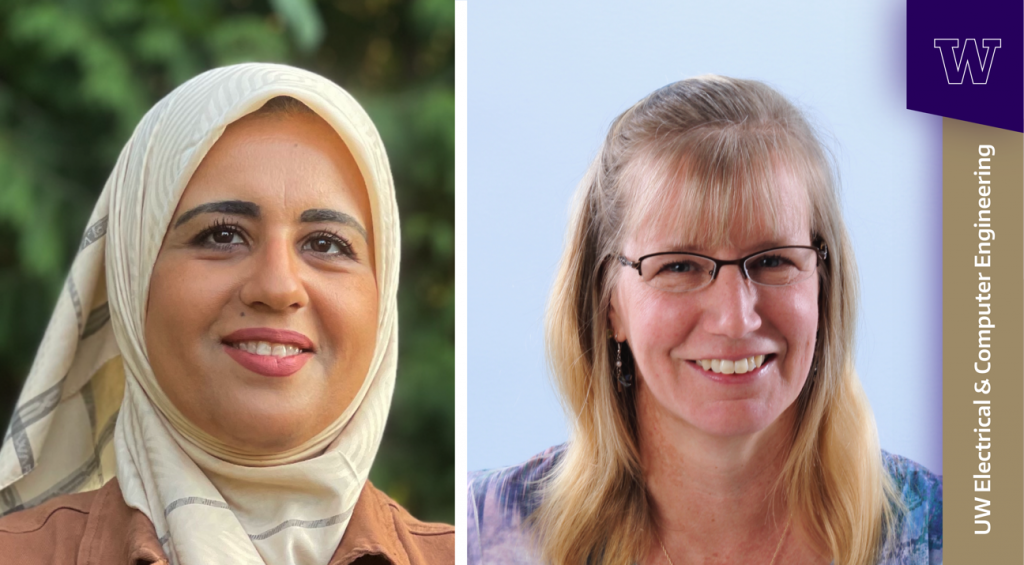
Congratulations, UW ECE Assistant Teaching Professor Rania Hussein and Professor Denise Wilson on winning Best Paper Award in the ECE division at the 2021 ASEE Conference for their paper titled “Remote Versus In-Hand Hardware Laboratory in Digital Circuits Courses.” The paper evaluated the learning outcome of students in EE 371 using the remote FPGA lab versus using traditional lab kits. Results showed that students were able to take advantage of a full-fledged remote experience without compromising their educational experience versus in-person classrooms or labs.

Sepehr “Sep” Makhsous
Recent UW ECE PhD graduate Sepehr “Sep” Makhsous is OSAP‘s recipient of the 2021 Dr. James A Cottone Award for Excellence in Investigative Research for his abstract, Evaluating Aerosol Persistence During Dental Procedures Using a Real-Time Network of Sensors. Makhsous and his team investigate the integration of real-time aerosol sensors in dental settings to help evaluate and improve mitigation strategies to eliminate aerosol transmission. He has been working closely with Dr. Schwedhelm, Dr. Huang, and Dr. Chan from UW School of Dentistry to evaluate a sensor network system, and they are actively looking for collaborators to help them with understanding the current limitations in aerosolized viruses and pathogens during dental procedures.
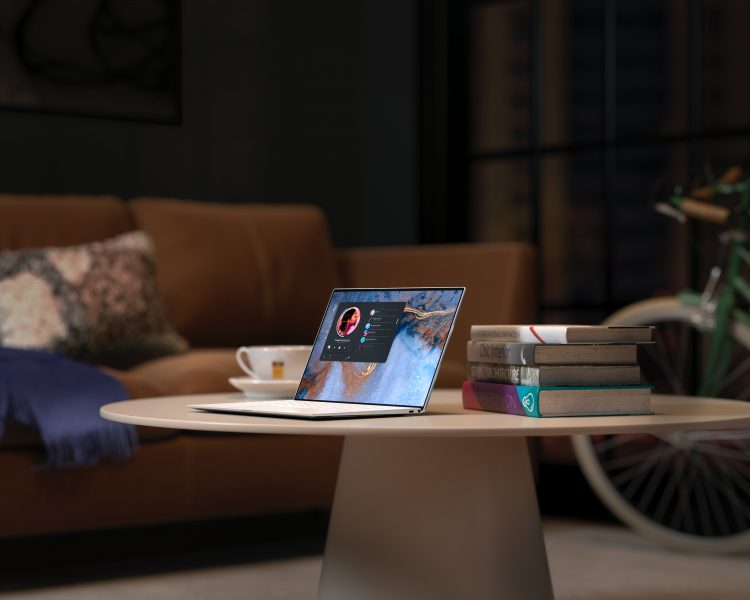
photo: Unsplash
From ‘distress’ to ‘unscathed’ — mental health of UW students during spring 2020
To understand how the UW’s transition to online-only classes affected college students’ mental health in the spring of 2020, a team of UW researchers — including Margie Morris, Kevin Kuehn, Jennifer Mankoff, Eve Riskin, Paula Nurius and Anind Dey — surveyed 147 UW undergraduates over the 2020 spring quarter. The team compared the students’ responses to a previous survey of 253 students in spring quarter 2019. Read the full story here.
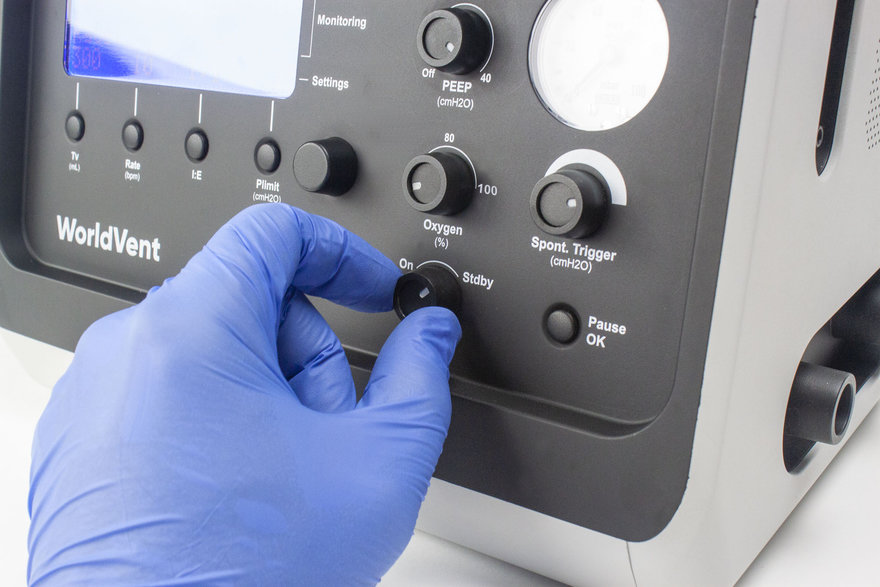
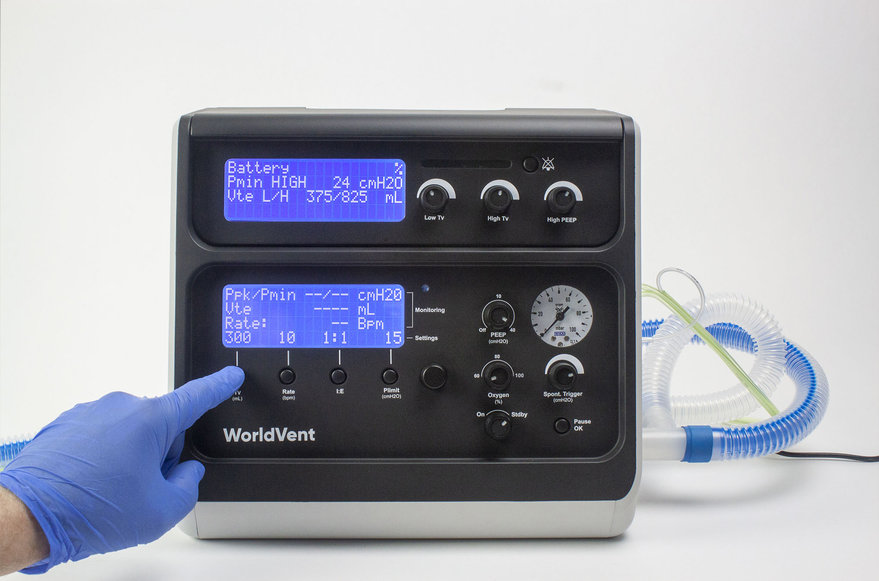
WorldVent Ventilator project wins design award: A multidisciplinary team of volunteers including UW ECE students of and faculty members Blake Hannaford and John Raiti has been awarded a Runner Up prize in the Core 77 Design Awards 2021 competition for their WorldVent Ventilator project.
In response to the shortage of accessible and affordable ventilators at the start of the COVID-19 pandemic, a group of Seattle-based volunteer clinicians, designers, engineers, and philanthropists came together to form a unique non-profit humanitarian organization called the World Ventilator Foundation. At the heart of this organization was the design and development of a new low-cost emergency response ventilator. The WorldVent ventilator is a streamlined, mechanical ICU pandemic ventilator that performs the same life-saving function as highly-technical ICU ventilators at a fraction of the cost. It is lightweight, has a highly-intuitive controls, and can be rapidly and easily produced, facilitating the treatment of COVID-19 patients experiencing respiratory failure. The modular design is meant to operate in a range of medical facilities from hospitals, field hospitals, and even austere environments with limited medical personnel and infrastructure.
Learn more about their project and the competition here.
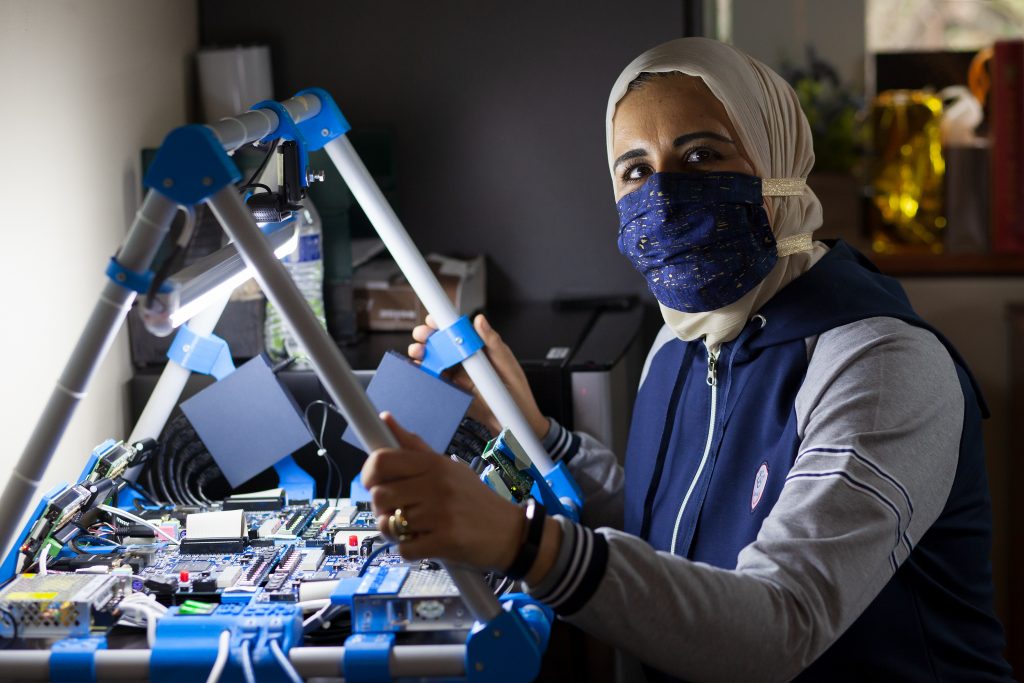
Assistant teaching professor Rania Hussein with one of the remote FPGA labs. Photo: Ryan Hoover | UW ECE
How might we apply remote learning beyond the pandemic? UW ECE assistant teaching professor Rania Hussein collaborated with four universities to set up FPGA circuit boards on campus so that students could remotely access and utilize real hardware located at all participating universities. Read more here.
Update: Hussein’s research and the Labsland platform that hosts it is also featured in the June, 2021 issue of IEEE Spectrum magazine.

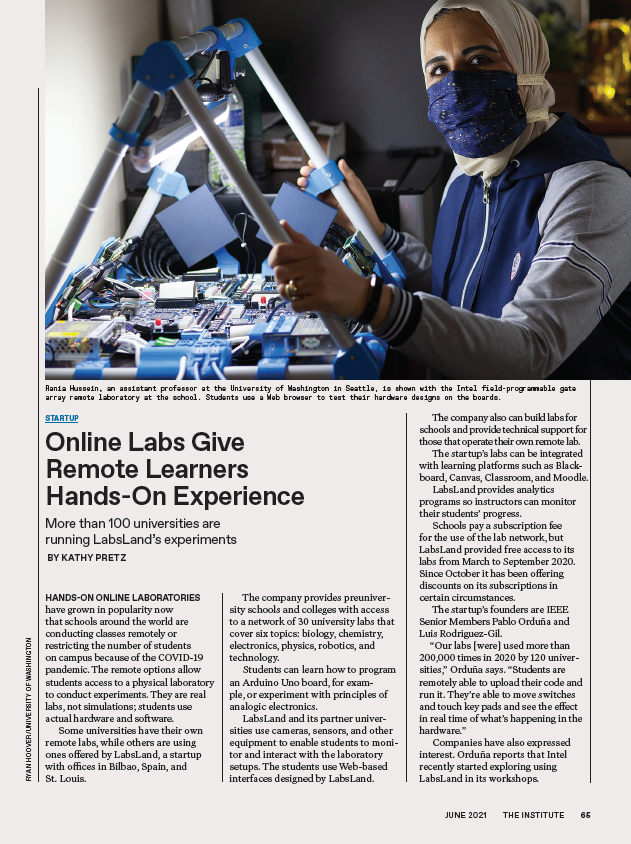
VICE News: Inside a Native American Tribe’s Push to Take Part In COVID Vaccine Trials (video above)
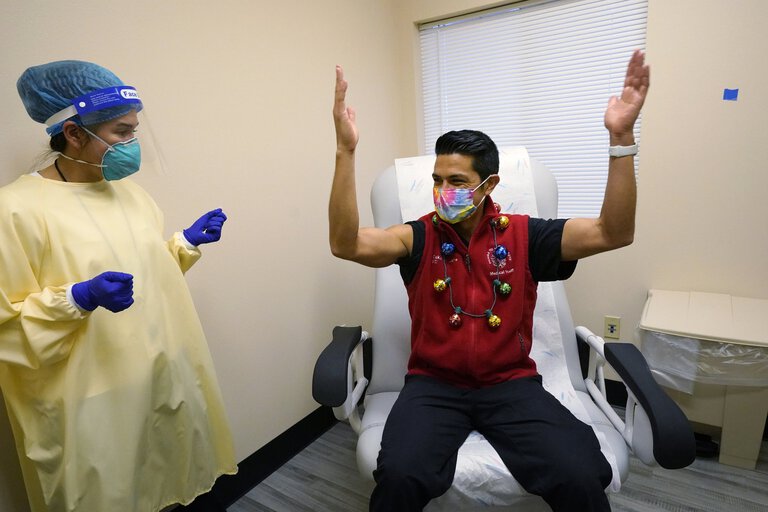
Dr. Dakotah Lane, Lummi Nation medical director. Photo: Elaine Thompson / The Associated Press
The Lummi Nation began vaccinations last Thursday (Dec. 17, 2020), becoming one of the nation’s first to provide protection for its tribal members. 300 doses of Pfizer’s vaccine were received earlier that week, said Dr. Dakotah Lane, a UW ECE alum and Lummi Nation member who is now the medical director of the Public Health Department for the tribal nation. While Native Americans represent a disproportionate number of COVID-19 cases and deaths nationwide, Dr. Lane and his team have been proactive since the start of the pandemic to mitigate the number of cases in the Lummi Nation. Read more here.
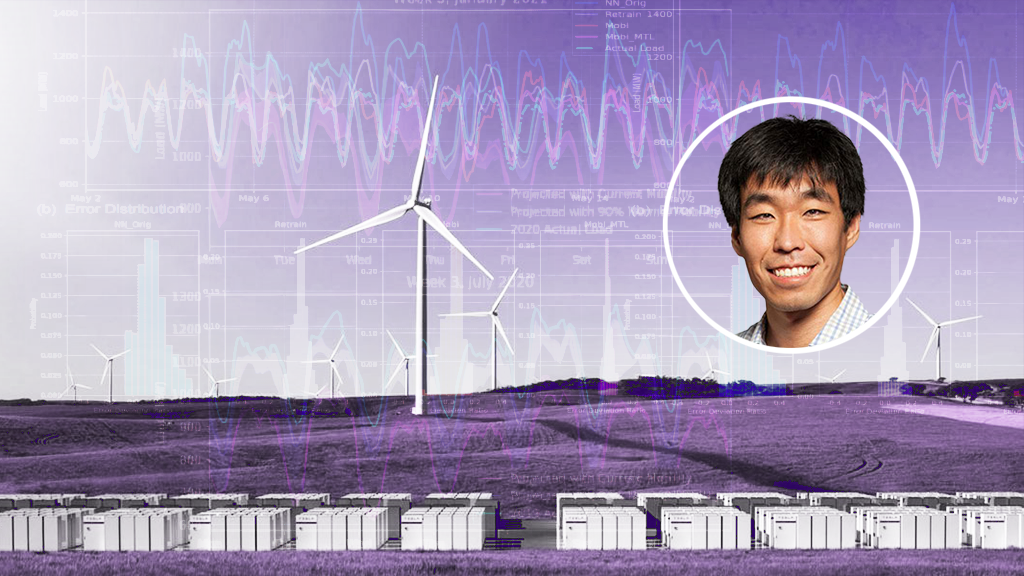
UW ECE professor Baosen Zhang. Photo illustration: Ryan Hoover | UW ECE
Researchers at Microsoft and the University of Washington, including UW ECE professor Baosen Zhang, propose an AI system that uses smartphone location data to forecast electrical load. Read more here.
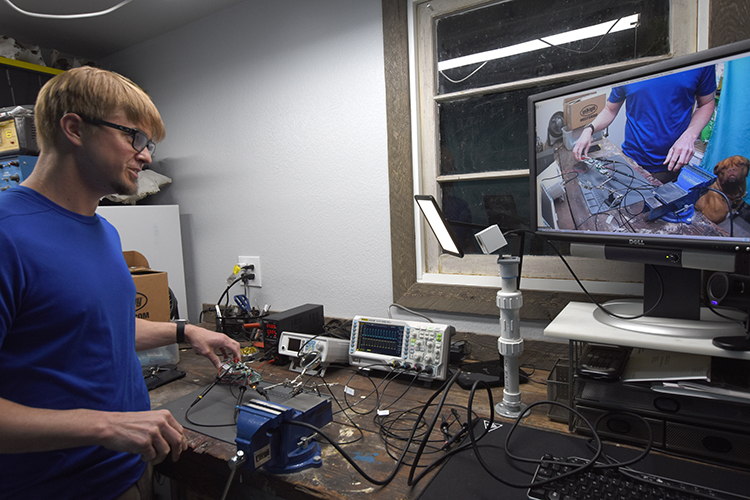
Brody Mahoney, a graduate student working in the lab of UW ECE Professor Josh Smith, uses the Wyze webcam to share engineering prototypes with instructors, classmates and colleagues.
Wyze donates 1,000 cameras to UW ECE as part of their Wyze in Response effort. Read more here.
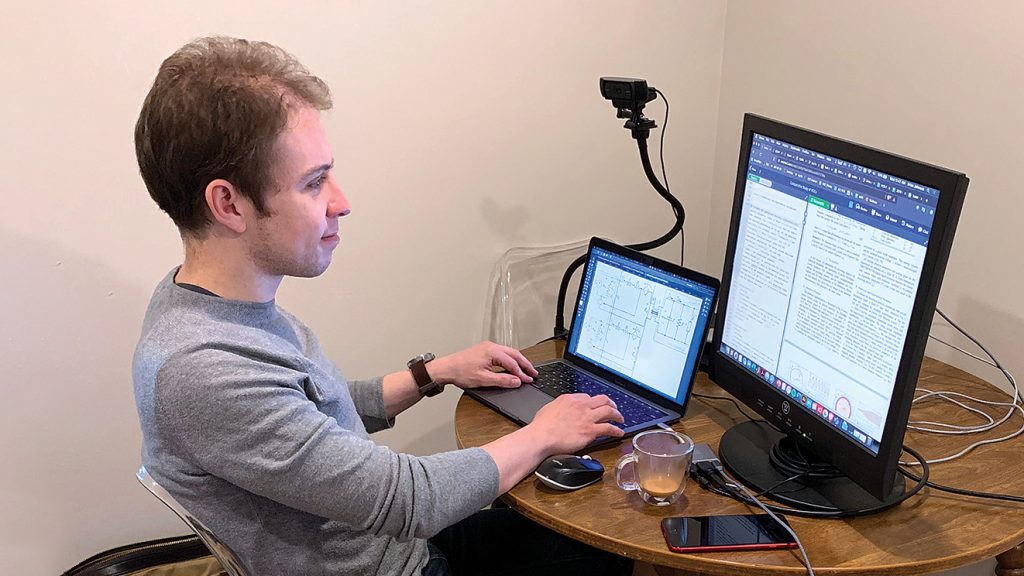
Brian Johnson continues his research from his home office. Photo: Amanda Johnson
UW ECE Assistant Professor Brian Johnson featured in IEEE Spectrum article on how the novel coronavirus has disrupted labwork and field experiments at various institutions around the country. Read more here.
UW ECE Faculty & Student Research on COVID-19
Faculty and students in the University of Washington Department of Electrical & Computer Engineering (UW ECE) are leading collaborative research across campus and with other institutions aimed at reducing impacts of the novel coronavirus (COVID-19). Their work ranges from assisting with diagnostics, testing and tracking, to engineering ventilator technology, to developing targeted treatments for the disease. Below are summaries of a few of these projects.
Testing and Therapeutics
UW ECE professor and chair Eric Klavins is leading two large research projects funded by the Defense Advanced Research Projects Agency (DARPA). The first is in collaboration with David Baker, director of the Institute for Protein Design and member of the Molecular Engineering & Sciences Institute. Baker’s lab is heavily involved in discovery of targeted treatments for COVID-19, and Klavins’ lab is collaborating by using Aquarium, software Klavins developed to help build reproducible experimental protocols and workflows. Aquarium helps Baker’s scientists and lab technicians conduct research and experiments at a faster rate and standardize data documentation.
Klavins’ second project is in collaboration with Boston University and Duke University. It is focused on adapting Aquarium software to re-purpose labs for COVID-19 diagnostic testing and data analysis. Visit http://klavinslab.org/ for more information.
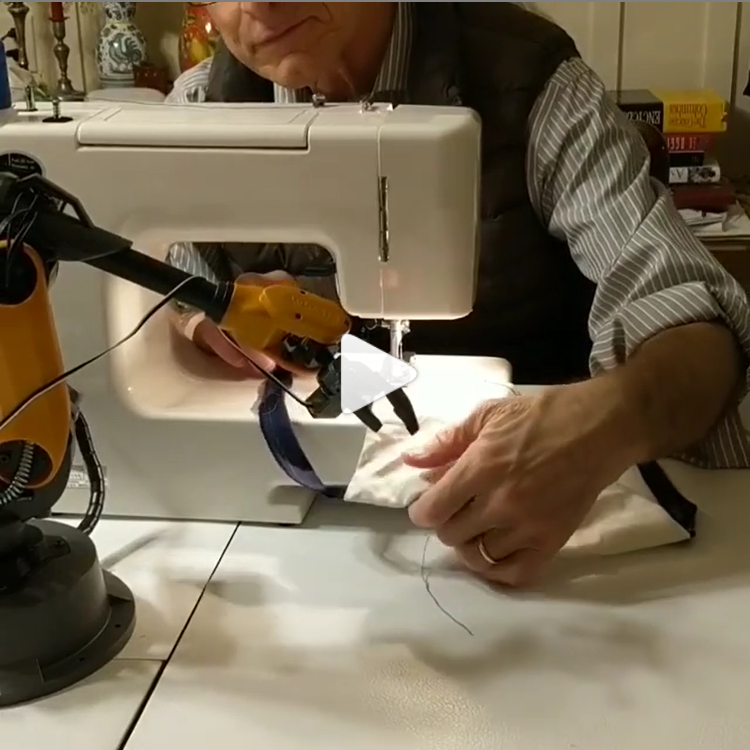
Professor Blake Hannaford making PPE with robotic assistant
Ventilator Technology
ECE affiliate professor David Allstot has been working with professor Gaurab Banerjee and other colleagues at the IISc (Indian Institute of Science) to create an ICU-grade ventilator from scratch. The Project PRAANA team successfully developed the ventilator prototype in an impressively short period of time, taking just 35 days to go from the drawing board to a proof-of-concept system, and then a working prototype in another two weeks. The ventilator, which contains no moving, mechanical parts, uses components manufactured almost exclusively by domestic Indian companies and other locally sourced parts in order to replace more expensive imported models from abroad. This will drastically reduce manufacturing costs and selling prices, allowing the life-saving device to become available not only in major urban Indian cities, but also in a number of rural areas as well. Watch Indian television news feature here, and read more about the research project here.
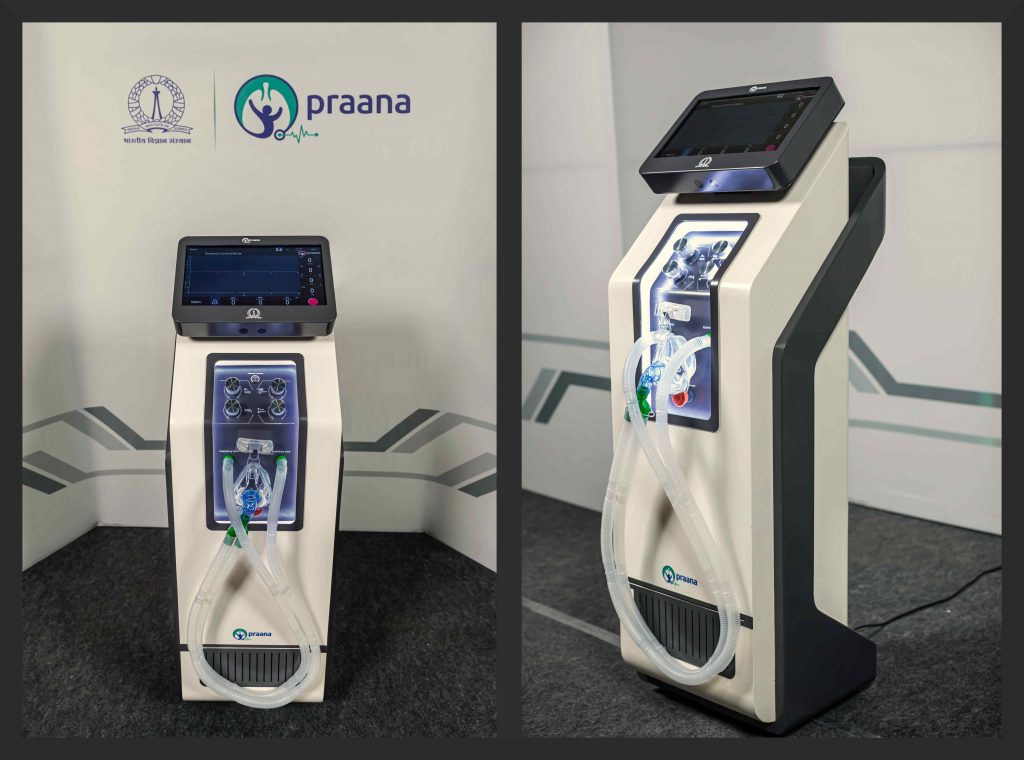
Geographic Disease Tracking
Using algorithms and signal processing which has been developed for estimating the direction of arrival of sonar and cellular radio signals, ECE professor Les Atlas and his team are working on a project to give more insight into the directions of transmissions of COVID-19 infections. The results are expected to be helpful in travel and policy decisions. This work is funded by the Office of Naval Research. More details to follow.
Contact Tracing
Disease Monitoring and Accurate Screening
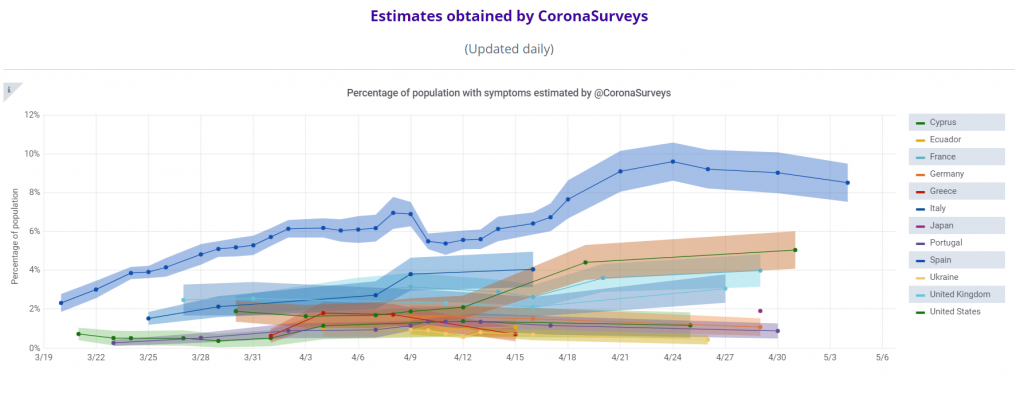 The CoronaSurveys Project
The CoronaSurveys Project
Other resources
General Resources
The UW Office of the Provost’s list of resources
Seattle Times page, updated periodically with new resources
Health
Waived UW Health Fees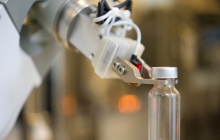
Mental Health
Free Remote Counseling and other mental health resources
Website to support mental health during COVID-19 crisis: www.virusanxiety.com
Physical Health
Peloton – free, no equipment required workout classes for 90 days with the app
Down Dog Yoga app, now free for students and teachers until July
Software
UW IT – Adobe Creative Suite temporary home licenses
Finances / Logistics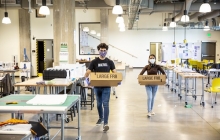
Guidance from COE Career Center on the job market/internships in COVID-19
List of critical jobs at UW that are still hiring
UW Student Technology Loan Program
Enterprise Car Rental Assistance
U Haul Storage/Move Out assistance for students
T-Mobile free unlimited data and help with phone plans
How you can help support the response to COVID-19
